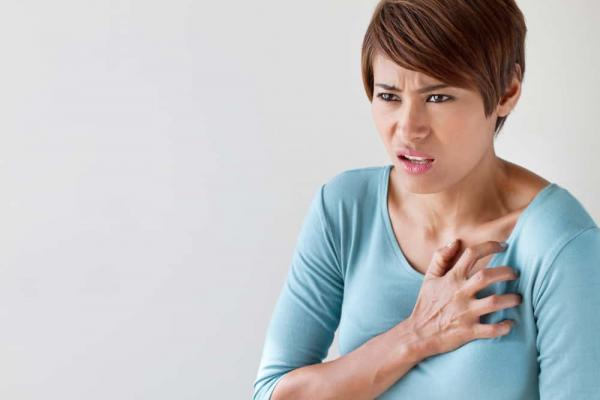
After working for seven years in the coronary care unit of two hospitals, I have seen a number of heart attacks. I have seen deaths that could have been prevented if people had known the warning signs. Heart attacks kill more than 700,000 people per year in the United States. Only 10 percent of people who suffer identify symptoms and seek medical attention on time.
Your knowledge of heart attack symptoms can save your own life and the lives of your family.
Heart attack symptoms in women according to the American Heart Association:
-
Pain, pressure or discomfort in the chest area or center of the chest, lasting more than a few minutes.
-
Pain in one or both arms, neck, back, jaw and/or stomach.
-
Shortness of breath with or without chest discomfort.
-
You may also sweat, experience nausea or feel dizzy.
-
Women are more likely to experience all these symptoms.
"Although men and women may experience chest pain described as though an elephant was sitting on top of their chest, women can experience a heart attack without feeling pain or pressure in the chest". -Dr. Nieca Golberg, medical director of Women's Health Center
Symptoms of heart attack in men according to WebMD:
-
Discomfort, pressure or chest pain.
-
Pain in the arms, neck, jaw, back or stomach.
-
Difficulty breathing, dizziness, nausea or sweating.
-
Upset stomach that may be confused with stomach acid.
Experts say that no two heart attacks are exactly the same. Dr Daya explains that "there are a spectrum of presentations. We tend not to see medicine as white or black".
None of these symptoms should be taken lightly. If you or someone who is with you the experience any of the above, call emergency services immediately. Because most heart attacks originate with atrial fibrillation in the heart, it is extremely important that the person receives immediate treatment. Quickly treating the symptoms of a heart attack reduces the change of irreversible heart damage.
Emotional Heart Attacks
Along with physiological conditions, there are several emotional factors that can trigger a heart attack.
According to a study in Britain, a person may suffer a fatal heart attack when they have a "broken heart". Broken heart syndrome frequently occurs in women after suffering from the loss of a loved one. According to the study's findings, during the eight days after the death of a loved one, the risk of a heart attack increases by 20 percent (even if you do not suffer from heart problems). This percentage decreases as the days pass, then vanishes after 30 to 60 days.
Broken heart syndrome is different from heart disease and is strictly related to stress and severe emotional pain. The symptoms are very similar, but when it comes to research and analysis, there is a difference.
Symptoms of broken heart syndrome, according to WebMD:
-
Chest pain
-
Agitation or difficulty breathing
-
Pain in one arm
-
Sweating
90 percent of patients who have been diagnosed with this syndrome are women. According to WebMD, 2 percent of men and 5 percent of women who go to an emergency room for a heart attack have instead been diagnosed with this syndrome. Although the symptoms of a heart attack and broken heart syndrome are similar, an electrocardiogram analysis yields different results.
However, because of the similarity between broken heart syndrome and heart attacks, if you or a loved one experiences any of the symptoms above, call 911 immediately.
This article has been adapted and translated from the original, "Los infartos matan sin discriminar tu edad: 5 síntomas de pre-aviso" which was published on Familias.com.

